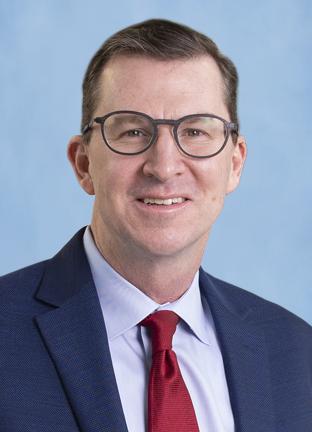Pre-surgery training program improves patient outcomes and care delivery
The University of Michigan is no longer training only its surgeons to prepare for good outcomes in the operating room; it is also training patients. From pulmonary calisthenics to aromatherapy to smarter snacking, surgical patients at the U-M are learning how to improve their chances of healing through the Michigan Surgical Home Optimization Program, or MSHOP. Researchers say better prepared patients will also help surgeons be more successful in treating patients.
“Much as an athlete trains for competition, patients should train for surgery,” says Michael Englesbe, M.D., an associate professor of surgery at the U-M and principal investigator of the MSHOP project. “The program is designed to help surgeons and patients make better decisions about surgery, to identify high-risk patients and train these patients to improve their medical outcomes following surgery.”
Training leading up to the operation focuses on four areas — move, breathe, eat and relax — and MSHOP addresses these areas through patient support and education. This includes encouraging quitting tobacco and practicing breathing exercises that help improve pulmonary function and decrease post-op pneumonia. The program is also designed to modify patients’ nutrition, exercise and stress levels for faster healing, reduced infections and optimized immune function — among other benefits.
In addition to empowering patients, the program also aims to improve health care delivery. MSHOP provides doctors and patients with new technology to predict surgical complications and make better decisions about procedures. Physicians can now use a risk assessment app on their smartphones to help determine if the surgery will go well for their patients, particularly for those who are elderly and frail. Applying technology most physicians already use, the app makes it easier for them to integrate the data into their fast-paced routines.
MSHOP will also use analytic morphomics, a method developed at the U-M that uses patients’ diagnostic imaging to assess surgical risk. U-M’s Morphomic Analysis Group is capable of semi-automated image processing of patients’ CT scans and taking quantitative measurements of core muscle size, subcutaneous fat and aortic calcification to better personalize the risk assessment. Analytic morphomics can accurately quantify a patient’s overall health and objectively measure a patient’s frailty, independently of the patient’s age.
“Analytic morphomics is an exciting new technology that has the power to provide critical data for a much more comprehensive, patient-specific, peri-operative risk assessment,” says Stewart C. Wang, M.D., Ph.D., a U-M professor of surgery and director of the Morphomic Analysis Group and the International Center for Automotive Medicine.
Since implementing MSHOP near the beginning of 2013, the U-M has seen a savings of $2,518 per case and has reduced time in the hospital after surgery by two days. The project, a collaborative effort between the U-M, the Michigan Surgical Quality Collaborative, or MSQC, and Blue Cross and Blue Shield of Michigan, has earned a $6.4 million Health Care Innovation Award from the Centers for Medicare & Medicaid Services to continue developing the pre-surgery program. The award project is led by Englesbe, and co-principal investigators U-M Health System Chief Medical Officer Darrell A. Campbell Jr., M.D., and Wang.
Moving forward, 12,500 patients will be enrolled in the program, first at UMHS and then at 40 hospitals in Michigan. A field-tested and optimized model will be available for implementation across the country at the project’s conclusion.
Englesbe and Campbell also recently applied for a $40 million grant to implement in other states a Michigan model to transform the quality and cost of perioperative care. Over the last decade, MSQC has partnered with the Anesthesiology Performance Improvement and Reporting Exchange, led by Sachin Kheterpal, M.D., a U-M associate professor of anesthesiology, and the Michigan Value Collaborative, led by David Miller, M.D., a U-M associate professor of urology, to form the Michigan Perioperative Transformation Network, or MPTN. MPTN has built a model for quality improvement based on fostering a culture in which hospitals and providers around the state work together and share data to discover and rapidly implement best practices. Their model has yielded a cost savings of nearly $600 million, while simultaneously improving and prolonging the lives of thousands of patients from across Michigan.
Englesbe and Campbell’s new project proposes expanding the infrastructure and experience gained in Michigan to build perioperative transformation networks in Illinois, Oregon, South Carolina and Tennessee.

Michael J. Englesbe, MD, FACS


